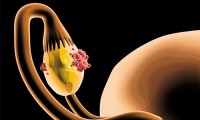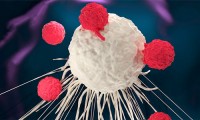-
New nanomedicine could prevent progression of pancreatic cancer
- Source: Israel21c
- 713
- January 30, 2018
-
AstraZeneca’s PARP Inhibitor Lynparza Gets Approval in Japan
- Source: finance.yahoo
- 980
- January 26, 2018
-
Shares of biotech Juno, already up 50% on deal hopes, skyrocket on actual Celgene $9 billion offer
- Source: Cnbc
- 1,224
- January 24, 2018
-
Merck KGaA taps UK cancer research organizations to feed pipeline
- Source: Endpts
- 798
- January 23, 2018
-
Modification of the Associations Between Duration of Oral Contraceptive Use and Ovarian, Endometrial, Breast, and Colorectal Cancers
- Source: Jamanetwork
- 696
- January 22, 2018
your submission has already been received.
OK
Subscribe
Please enter a valid Email address!
Submit
The most relevant industry news & insight will be sent to you every two weeks.













